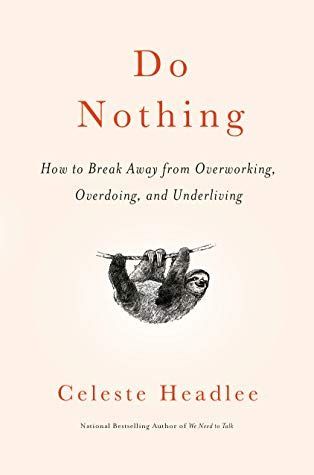
Do Nothing How to Break Away from Overworking, Overdoing, and Underliving
"We work feverishly to make ourselves happy. So why are we so miserable? Despite our constant search for new ways to "hack" our bodies and minds for peak performance, human beings are working more instead of less, living harder not smarter, and becoming more lonely and anxious. This manifesto helps us break free of our unhealthy devotion to efficiency and shows us how to reclaim our time and humanity with a little more leisure"--
Reviews
Emilee Keawe Oldroyd@emileenewton
BC Hark@vaporvisions
indri@inclri
Tim Connors@timconnors
Róbert Istók@robertistok
Sarah Pino@hoysarah
Jeremy Anderberg@jeremyanderberg
jacob ketcham@jacobketcham
KBY@brickmank
Katie Guo@ukime
Lisa Lindquist @lisalindquist
João Maia@joaomaia
Jordan /@jordanesperlak
Jakob Hultman@raekob
Daniel Cleveland@dzilla
Barry Hess@bjhess
Xavier Roy@xavierroy
iia w@squiddy
Jess Mingrino@jessmingrino